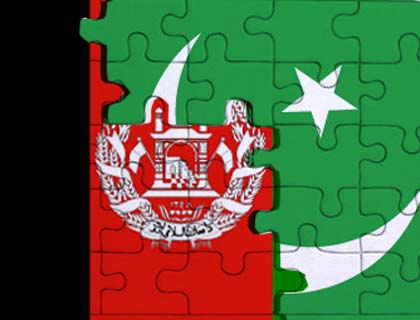Pakistan is undergoing Afghanistan syndrome. The ‘strategic depth’ mantra of the far-right within the manifold of policy makers in Pakistan has virtually turned to be a ‘strategic dent’ in the roller costar of the foreign policy.
Fault line runs through the so-called ‘state ideology’ by the establishment cronies, confining governance of the country to the rotten statecraft. Can a state have an ideology as such? Absolutely not!
Every single human and institutional entity in the country is in the blue these days due to their highly justified concerns over the Afghanistan engagement – the stability of a wavering Pakistan. Everyone including the security establishment, civil governors, left and right wing outfits, and ethnic nationalists have different conflicting visions of that stability.
The Khakis, dominating everything on the both sides of mighty river Indus; envision the stability of Pakistan vis-à-vis Afghanistan by carrying forward the old strings. Contrarily, a discourse for broader political settlement in Afghanistan guarantying stable Pakistan has taken central stage in various social segments.
Civil governors are dwindling from center left to center right. Left, although a handful of urban middle class and elite, is divided on the lines of anti-Americanism and anti-fundamentalism. Ethnic nationalists, who are moderate and secular utmost, tilt against Taliban as Talibanization is adversely affecting their liberal societies.
Northern Punjab province is not only supporting but defending Taliban; meanwhile the southern is giving a pulpit view. Pashtuns are also divided. Followers of Khan Abdul Ghaffar Khan, popularly known as Gandhi of Pashtuns, profess secularism; meanwhile the insurrected tribes tune the songs of Taliban. Majority of the Balochistan province, particularly ethnic Baloch, is liberal and moderate. Sindh province is secular and has historically been dislodging religious extremism.
In fact Sindh, having little say in the state policies, has underwent long-lasting troubles including influx of refugees in millions and increase in the religious extremism which is, even though, lowest if compared with the other provinces. Pakistani establishment has never bought the opinion of Sindh regarding Afghanistan and India.
Pakistan’s vision of Afghanistan is three pronged - ethnic representation of Pakistan friendly Pashtuns in the Kabul; securities offering Afghanistan after NATO forces withdrawal, and finally limiting the role of India. Pakistan’s Afghan policy has neither focused west-southern and west-northern Afghanistan nor it has gone beyond the ethnic Pashtuns; consequently limited options are left for Pakistan and therefore, it has been reluctant to participate in the restructuring initiatives for boarder national government in Afghanistan which accommodates ethnic diversity of this war-torn country.
In fact, the fear of greater Pakhtunistan is the bedrock of Afghanistan policy in Pakistan mostly because Kabul doesn’t recognize Durand Line, nor it is recognized by Pashtun autonomous tribes as well as the people of Khyber Pakhtunkhuwa province. Besides, the cliental nature of the state with the financial and corporate interests of the military has been an important factor behind the narrow security approach limited to the fewer options.
Pakistan needs to come out with a broader security and political vision and strategy for Afghanistan because it plans the bilateral trade and energy deals with Central Asian States and Russia. Had there been acceptance of Sindh’s vision and public opinion for engaging with Afghanistan and India, there would have been a predictably positive scenario for the country.
In fact Sindh’s political vision has never been translated in the foreign policy of the country, which can be summed up like a non-extremist, ethnically cohesive and stable Afghanistan as well as friendly India is the guaranty of liberal and prosperous Pakistan and certainly thereby for secular and prosperous Sindh province, as well.
Today, Afghanistan needs to restructure itself on the lines of a diversity honoring federation giving due representations to all ethnic, linguistic and religious groups. Until all international actors engaged in, including Pakistan, the situation will ruin the order and interests of the region and the world, and most specifically of Pakistan. A new Afghanistan is only possible when a new Pakistan is created; and definitely this means vice versa as well.

